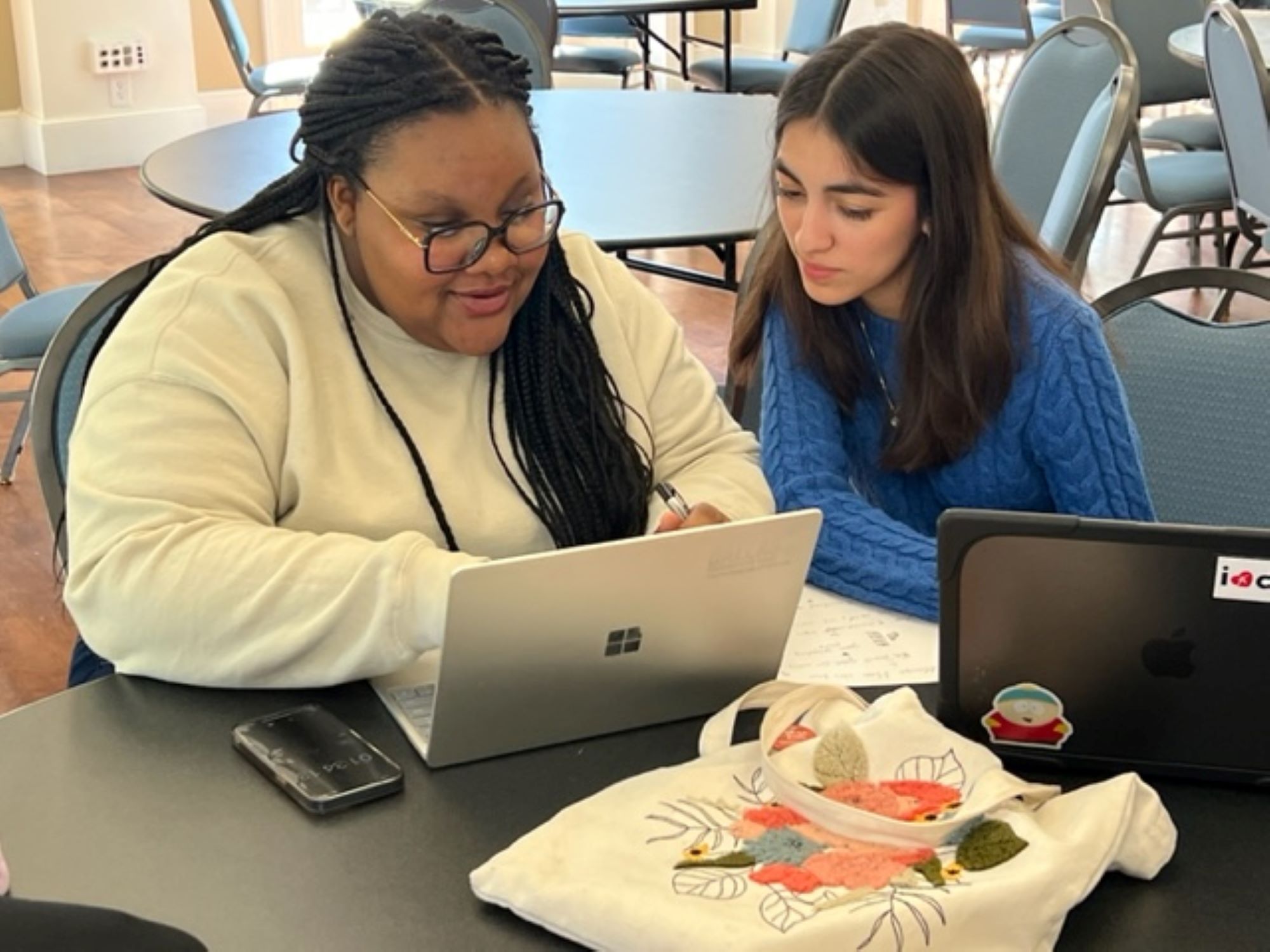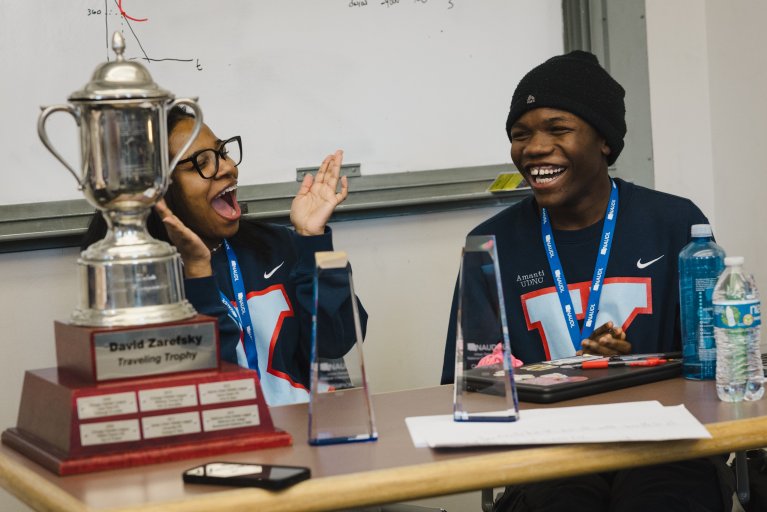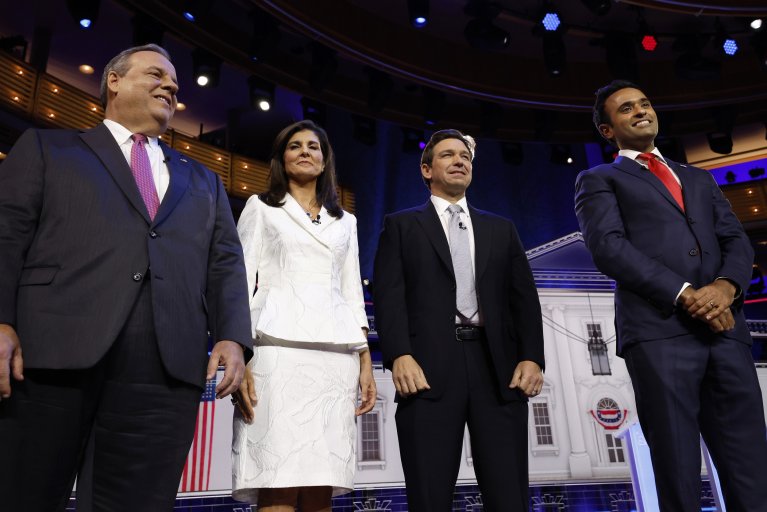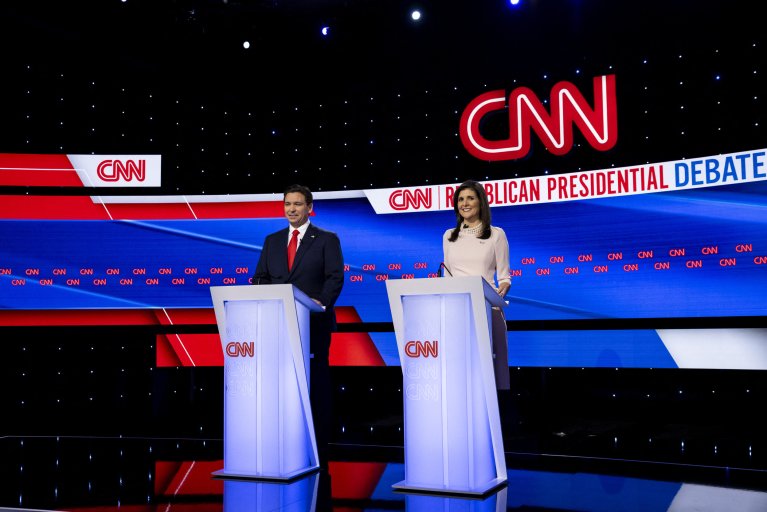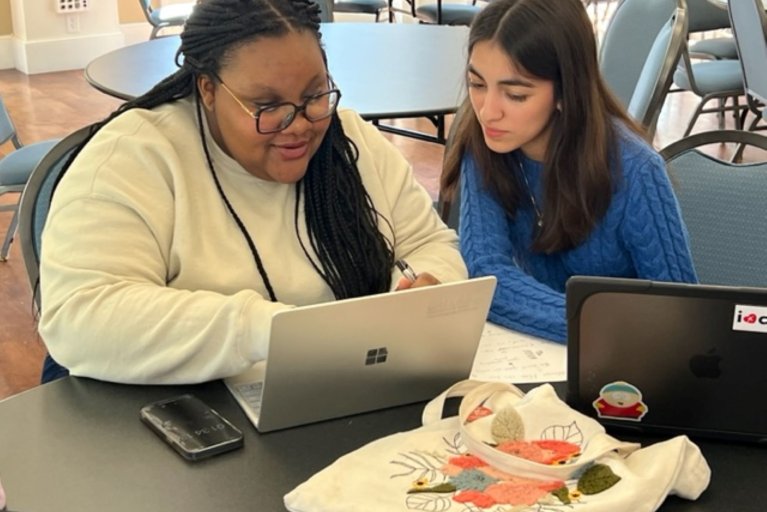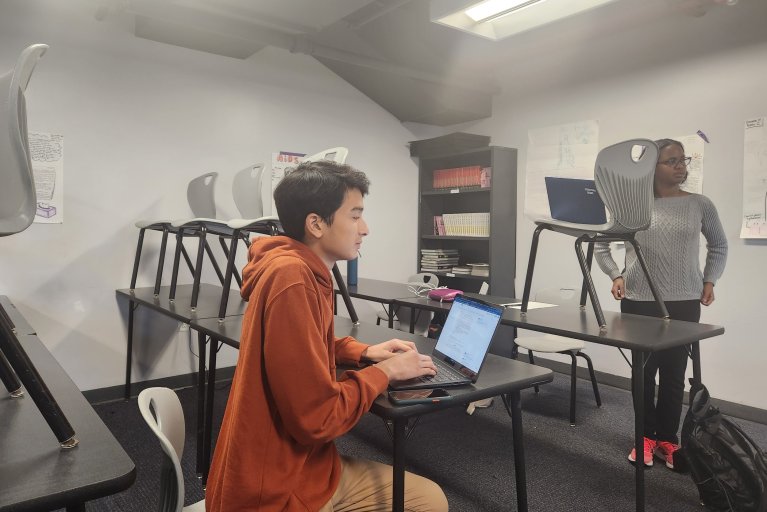Oct 17, 2023 At 03:19 PM EDT
The Dallas Urban Debate Alliance (DUDA) will highlight its newest debate format—one focused on community action—with a public event tonight. On Tuesday, October 17, members of the Dallas community will gather at Southern Methodist University (SMU) to engage in a discussion about environmental and housing inequality issues facing certain neighborhoods in the city.
Tonight's event is part of the National Association for Urban Debate Leagues' (NAUDL) I RESOLVE public debate series for the 2023-2024 school year. Every year since 2020, NAUDL has sponsored I RESOLVE events across the country, choosing a handful of leagues to host debate events that go beyond competition and focus on finding real-world solutions that will impact people's daily lives.
In Dallas, the students will be showcasing a new format the league created over the summer called community action debate, which centers on a local issue. The DUDA Executive Director Cindi Timmons said the league has taken the national policy topic of economic inequality and "boiled it down" to a local issue of housing inequality in Dallas.
High school senior Hank Suprun told Newsweek that in policy debate, he mostly focuses on issues at the national or international level. With this format, he can dig deeper into issues more relevant to his everyday life.
"The opportunity to learn and advocate for different parts of the Dallas community and see the issues that are affecting us at a local level is really cool," he said.
The students who applied to participate in the event are some of DUDA's most experienced debaters and were selected based on their participation at the 2023 National Speech and Debate Association (NSDA) national speech and debate tournament.
Suprun and Hope Habia are both seniors who attend Judge Barefoot Sanders Law Magnet high school. They will be debating with Katelyn Moss and Guadalupe Vasquez, two seniors from Irma Lerma Rangel Young Women's Leadership School.
Habia recently moved to the Dallas area. He said that doing research for his I RESOLVE argument helped him gain "a more genuine connection" with his new community.
"I've actually learned some things about my own community that I've lived in that I didn't know prior, I wasn't aware they were fighting some of these injustices that we are debating about until I did the research," Habia said.
The event will be interactive, involving the debaters, judges and audience members in conversation, Timmons said. It will begin with a roundtable conversation about the problems facing Dallas and its communities, and how best to allocate city resources. Then, the four students will present their arguments. During the debate, judges, who will be prominent members of local communities, can ask students questions. After the debate, everyone, including the students, will return to their roundtable conversations to discuss what they've learned and if their opinions have changed at all after hearing from the speakers.
For Moss, this demo debate is very personal. She is arguing about policy changes in Joppa, the predominately Black neighborhood where she lives. Moss said it is a special community, historically, but has suffered environmental injustices, including air pollution.
"We have terrible air quality issues because we are surrounded by an industrial concrete batch plant, along with heavy traffic from [interstate] 45, 175 and [Texas State Highway Loop] 12 and the Union Pacific Railroad," she said.
Moss and Vasquez will argue that the city should invest air quality resources into the specific community of Joppa.
On the other side, Habia and Suprun will take an approach that focuses more on fixing the systemic, city-wide issues that perpetuate challenges facing individual communities.
"I've seen root causes of why communities like Joppa, Dixon Circle, Floral Farms might be experiencing these environmental harms in the first place, and then we also offer some different solutions to fix the ongoing pollution that is plaguing these neighborhoods," Suprun said.

With community action debate, the students find they're not really debating at all. Unlike policy debate, where students battle opponents on the opposite side of a foreign or domestic political issue, Habia said there isn't a right or wrong stance when talking about these localized community issues. The goal tonight is not to win over the other team.
"Everything is very nuanced," Habia said. "There is no one way to solve housing inequality, income inequality, to air pollution in Dallas. On the stage [tonight], we're not debating. It's really having more of a conversation about how to solve a problem. Our aim isn't to tear the other side down or disprove them, it's more so figuring out how we can achieve the best solution for everyone involved."
Community action debate is also a more digestible format that doesn't rely on big words and complicated jargon. It is meant to be presented before a layman audience and involves plans that are realistic and could actually work if implemented into a community.
Tonight's event will also feature a speech from Temeckia Derrough, a member of the Dallas Environmental Commission representing Joppa's district. Derrough has been a staunch advocate for improving air quality in Joppa. There will also be other members of the Joppa community present to give personal stories about the realities they face due to poor air quality, including bad smells and smog.
The presence of Derrough and other community leaders gives the students the opportunity to propose their plans to people who are not only willing to listen, but have the power to enact real change.
The audience for the I REOSLVE event will consist of up to 100 people, including students from across the Dallas Independent School District who may not know about the realities facing their communities. Vasquez said the purpose of community action debate is to highlight an issue that's often overlooked, "especially in low-income communities that have been historically targeted and vulnerable."
"I think both sides [are] equally shedding light on an issue and educating people in the audience [about] what is going on in our community that a lot of people tend not to focus on," she added.
Timmons, who recently coached the U.S. national debate team to a world championship in Vietnam over the summer, said she often focuses on "the game" of debate; the academic competition that relies on argumentation skills to best opponents and win trophies. She said working with community action debate in DUDA allows her to see another side of the activity.
"The powerful thing about this form of debate is that this is where debate meets the real needs of the community and where we can probably make more of a difference in real people's lives," she said. "Using our debate skills outside of the game and applying it to real life is transformative and powerful."
The DUDA I RESOLVE begins at 6:30 p.m. CDT. The Washington Urban Debate League held its event on Oct. 5 and the Silicon Valley Urban Debate League will hold its I RESOLVE event on Nov. 9.


